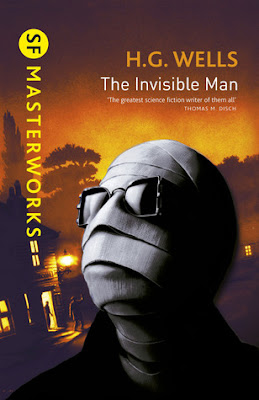 |
| 4 out of 5 stars |
Hugh d’Ambray, Preceptor of the Iron Dogs, Warlord of the Builder of Towers, served only one man. Now his immortal, nearly omnipotent master has cast him aside. Hugh is a shadow of the warrior he was, but when he learns that the Iron Dogs, soldiers who would follow him anywhere, are being hunted down and murdered, he must make a choice: to fade away or to be the leader he was born to be. Hugh knows he must carve a new place for himself and his people, but they have no money, no shelter, and no food, and the necromancers are coming. Fast.
Elara Harper is a creature who should not exist. Her enemies call her Abomination; her people call her White Lady. Tasked with their protection, she's trapped between the magical heavyweights about to collide and plunge the state of Kentucky into a war that humans have no power to stop. Desperate to shield her people and their simple way of life, she would accept help from the devil himself—and Hugh d’Ambray might qualify.
Hugh needs a base, Elara needs soldiers. Both are infamous for betraying their allies, so how can they create a believable alliance to meet the challenge of their enemies?
Elara Harper is a creature who should not exist. Her enemies call her Abomination; her people call her White Lady. Tasked with their protection, she's trapped between the magical heavyweights about to collide and plunge the state of Kentucky into a war that humans have no power to stop. Desperate to shield her people and their simple way of life, she would accept help from the devil himself—and Hugh d’Ambray might qualify.
Hugh needs a base, Elara needs soldiers. Both are infamous for betraying their allies, so how can they create a believable alliance to meet the challenge of their enemies?
Buying and reading this novel was my birthday treat to myself. And what a good treat it was!
I remember wondering at one or two points in the Kate Daniels series if Kate shouldn’t have been a little more tempted by Hugh d’Ambray--I wasn’t completely sold on Curran at the beginning. Now, the Andrews give us another look at things from Hugh’s point-of-view and I had some of my questions answered.
Hugh becomes more than just a tool of Roland in this story—he acquires a backstory which helps the reader to gain some sympathy for someone who seemed altogether evil in the Kate Daniels series. He also shows hidden depths and possibilities for redemption that I would never have believed possible. Very similar with what they did with Mad Rogan in the Hidden Legacy series.
With Elara, the Andrews manage to produce a woman of sufficient depth and complexity to match Hugh—in short, someone who is at least his equal and who can’t be overwhelmed by his bigger-than-life stature and who isn’t intimidated by his fearsome reputation. I am intrigued by her and will look forward to getting to know her better in subsequent installments.
There are lots of adventures, including a pow-wow with the Bouda Clan, led by Rafael & Andrea. I’m a forever fan of the were-hyenas, so I was glad to get to see them again. As usual, the authors create a number of characters and creatures that make me want to read on as soon as possible. How is it that Hugh’s horse Bucky can glow sometimes? And is his second in command going to learn ASL to impress one of Elara’s council? Can the Iron Dogs integrate themselves into the witchy community?
An entertaining enemies-to-lovers romance with all kinds of fun by-paths to explore. Now I just have to practice patience until the release of Magic Triumphs.
I remember wondering at one or two points in the Kate Daniels series if Kate shouldn’t have been a little more tempted by Hugh d’Ambray--I wasn’t completely sold on Curran at the beginning. Now, the Andrews give us another look at things from Hugh’s point-of-view and I had some of my questions answered.
Hugh becomes more than just a tool of Roland in this story—he acquires a backstory which helps the reader to gain some sympathy for someone who seemed altogether evil in the Kate Daniels series. He also shows hidden depths and possibilities for redemption that I would never have believed possible. Very similar with what they did with Mad Rogan in the Hidden Legacy series.
With Elara, the Andrews manage to produce a woman of sufficient depth and complexity to match Hugh—in short, someone who is at least his equal and who can’t be overwhelmed by his bigger-than-life stature and who isn’t intimidated by his fearsome reputation. I am intrigued by her and will look forward to getting to know her better in subsequent installments.
There are lots of adventures, including a pow-wow with the Bouda Clan, led by Rafael & Andrea. I’m a forever fan of the were-hyenas, so I was glad to get to see them again. As usual, the authors create a number of characters and creatures that make me want to read on as soon as possible. How is it that Hugh’s horse Bucky can glow sometimes? And is his second in command going to learn ASL to impress one of Elara’s council? Can the Iron Dogs integrate themselves into the witchy community?
An entertaining enemies-to-lovers romance with all kinds of fun by-paths to explore. Now I just have to practice patience until the release of Magic Triumphs.














